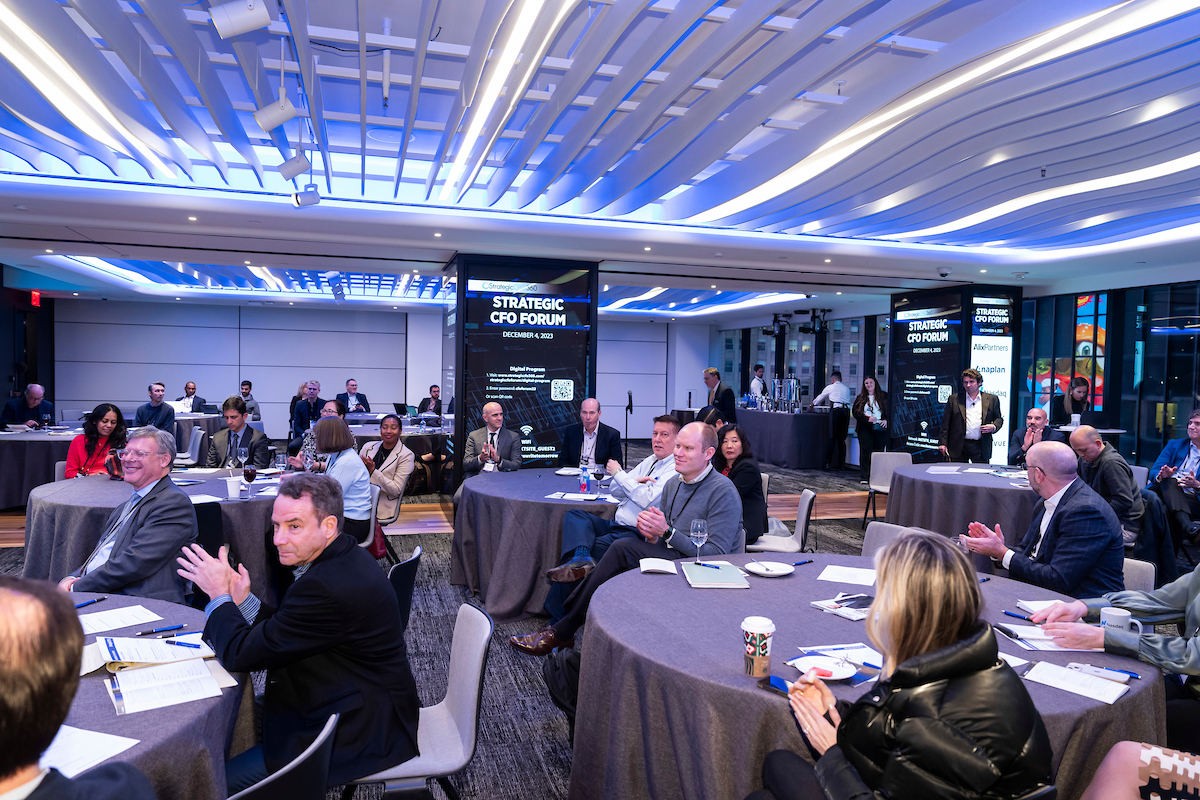Maybe the U.S. economy can hope not just for a “soft landing” into a slower pace of growth but actually can avoid much of a rough patch altogether, Phil Mackintosh suggested at our recent Strategic CFO Forum. The chief economist for Nasdaq presented a case that not only is the economy no longer slowing down but that it already has set the stage for a bounceback in 2024.
“Where we are is not looking like a recession at all,” Mackintosh told the Forum. “Job growth and consumer spending are why. The consumer in America has helped support the GDP this year and helped keep us out of recession.”
At the same time, Mackintosh said, his forecast for next year is that “all [industry] sectors will be positive, though the consumer sector will slow down a little. Everything gets closer to normal, but there will be a broad-based recovery.”
Mackintosh acknowledged remaining risks—such as to the balance sheets of regional banks—but said that a combination of factors including a leveling off of interest rates, the moderating of inflation, continued strong demand for employees and reshoring of manufacturing should allow the U.S. economy to claw upward in 2024.
Here’s how Mackintosh viewed some individual facets of the economy:
The American consumer. “Consumer spending keeps growing” and “credit cards have set new record levels” even after Americans have spent down most of the Covid-era excess of resources they compiled thanks to extra income from the government and their own reduced spending for a time, he said.
“When will the consumer stop?” Mackintosh said. “There still may be a trillion dollars’ worth of excess savings out there. The end point is coming, but no one is quite sure when. Estimates [of when spending might slow] keep getting pushed back.”
Housing and mortgages. In all the attention to rising interest rates and concern about how they have repressed Americans’ mobility in the housing market, he said, what got lost was the fact that millions of homeowners refinanced their mortgages during the pandemic at low rates that continued the pattern of the previous decade.
“So now,” despite recent high rates that have discouraged movement in the housing market, “the average mortgage rate is [still] 3.6 percent and is mostly locked in for 20 or 30 years. That’s what people are paying.” That’s a major reason few Americans are willing to sell the homes those mortgages have financed and move into a different house with a much higher loan rate, “but basically it tells you that the consumer isn’t as hurt by high interest rates as we’d thought they might be.”
Labor. The paucity of American workers is axiomatic by now, created in part by the fact that “a lot of older workers left” the labor force during Covid “and haven’t come back,” Mackintosh said. “But the stress on the labor market has kind of gone away very recently. And the participation rate for prime[-demographic] people has come back.”
In fact, he said, the pendulum of leverage has begun swinging back toward employers. They’re lately “in a much better position,” Mackintosh said. “Job openings have come down, and also quits. [Employees] are not as confident about keeping their jobs or being able to leave for higher pay.”
Corporate finances. U.S. companies “haven’t had a sales recession but an earnings recession,” he said. Supply-chain snarls prompted suppliers to raise prices, “then wages came up, and earnings per share went down. But now [EPS] is starting to have a recovery. There is margin expansion.”
Mackintosh expects that happy development to continue “pretty much across the board” of sectors, though not as robustly in Europe as in the United States.
The stock market. Because of the recent run-up in equity prices, Mackintosh said, “actual valuations” of corporate shares “are quite rich. The stock market got a little ahead of itself. It’s already pricing in the earnings recovery and the story of interest rates falling. So [the market] already has recovered.”
Thus, from here, Mackintosh said, “we might have a sideways market for a year. It won’t pick up again until GDP starts to grow again [more strongly] one and a half or two years from now, and it’ll be a big boost for the whole economy.”
China. A potentially huge drag on the global economy is the problems of China, which is struggling with overall growth, losing some of its manufacturing base as American and other western companies reshore their production, and dealing with a demographic time bomb because the Chinese aren’t reproducing enough to grow the population.
“And the Chinese consumer mostly doesn’t spend,” Mackintosh said. Such spending “is only 20 percent of the Chinese economy, whereas in the U.S. it’s 70 percent. So [consumer spending] hasn’t been able to buy China out of a recession.”
Artificial intelligence. The new technologies “will change the way we do things, like the internet changed things,” he said. AI especially could replace labor in call centers, for instance. Its’ capabilities? Generative AI like ChatGPT “is not good at finding great ideas but good at finding all ideas. It could be good for ideation, but not for thought leadership and changing the world.”
Risks. Mackintosh said the U.S. economy still faces significant risks. Commercial real estate, for example, still must largely absorb the flight of American workforces from offices, especially in city centers. And regional banks are major lenders to office holders, plus these banks “are suffering because interest rates are so high.”
Still, he said, leveling interest rates may help the regional-bank problem “resolve itself,” and other aspects of these banks’ loan portfolios, such as industrials, are “pretty healthy.”








